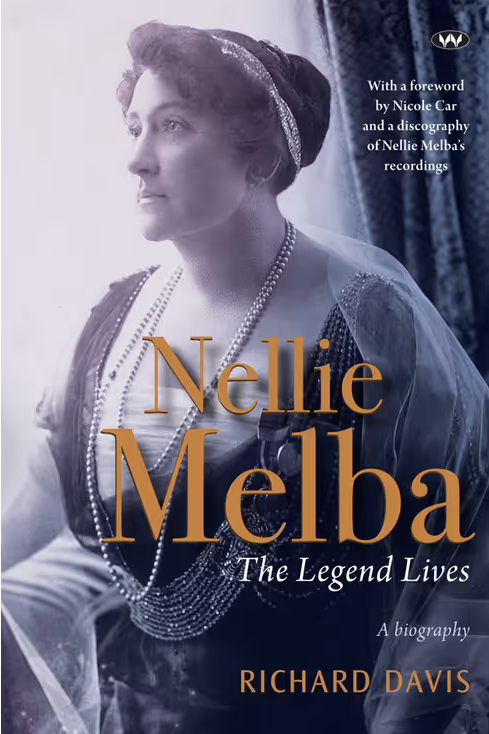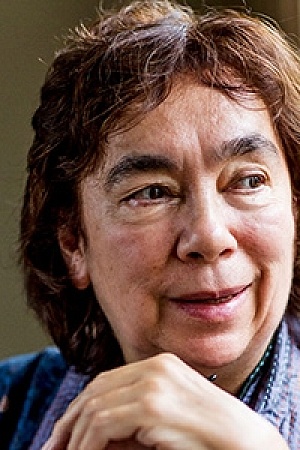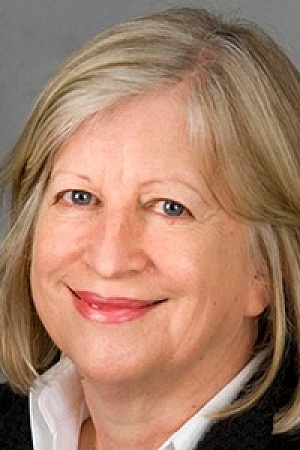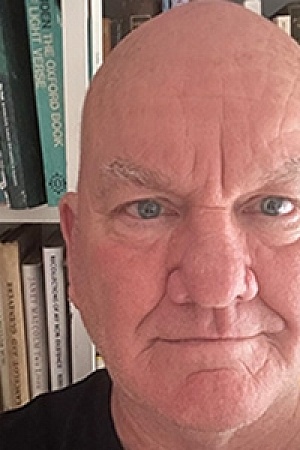Advances
ABR’s new Laureate
On 24 May, ABR named its third Laureate at a major event at the State Library of Victoria, hosted by Monash University’s Faculty of Arts. Monash University is ABR’s principal partner.
Internationally renowned historian Sheila Fitzpatrick joins our other Laureates, David Malouf and Robyn Archer. We list some of Professor Fitzpatrick’s myriad academic distinctions, publications, and accolades on page 13. Her connection with Australian Book Review has been significant since her return to Australia in 2012, and we know she is among ABR readers’ favourite contributors to the magazine. Always we look to honour a writer or artist who has excelled in his or her discipline or profession, and one who is sympathetic to the work of ABR.
On this occasion, having laurelled a poet–novelist and a singer–director of the first water, we wanted to recognise history and memoir, two genres of central importance to ABR and its readers. Few scholars have brought greater lustre to Australia, internationally, than our new Laureate.
Sheila Fitzpatrick told Advances: ‘I am tremendously pleased and touched by this honour. Australian Book Review has meant a great deal to me ever since I returned to Australia in 2012 after decades overseas. The magazine’s warm welcome to me as a writer then meant that I immediately felt part of a lively and inclusive intellectual community. It’s not often that historians get to be laureates, but ABR is reminding us that in Greek mythology Clio was one of the muses, and writing should be part of our job description. I’ll do my best to live up to that, and am excited to join ABR in this new role.’
Prizes galore
The ABR Elizabeth Jolley Short Story Prize closed in early May, with a large field from thirty-eight countries. Judging is well underway, and we look forward to publishing the three shortlisted stories in the August issue.
Meanwhile, the alluringly alliterative Peter Porter Poetry prize will open on 11 July – for the twentieth time. The prize money totals $10,000, with a first prize of $6,000. Our judges this year are Lachlan Brown, Felicity Plunkett, and Dan Disney (winner of the 2023 Porter Prize).
On page 27 we publish ‘Child Adjacent’, by Bridget Vincent, runner-up in this year’s Calibre Essay Prize.
Interestingly, the current reader survey reveals that Calibre is your favourite ABR literary prize, by a whisker from the Jolley.
Reader survey
Many thanks to those of you who have already completed the online reader survey. The response has been prompt, helpful, and mostly very positive. We’ll summarise the key data later, but we were amused by some of the responses to the question as to whom you would like to see in the magazine. ‘Myself,’ said one respondent, with bold candour. ‘King Charles III,’ nominated another. (‘Spare me,’ wailed the Editor.)
The survey is anonymous, unless you want to be in the running to win one of two exciting prizes. Thanks to Palace Cinemas we are delighted to offer one lucky reader a ten-ticket pass to one of its remaining 2023 national film festivals (Spanish, Scandinavian, Italian, or British). Another lucky entrant will win a three-year digital subscription to ABR.
Please complete this short reader survey and help us to go on improving the magazine.
Four tributes
In recent weeks, Australia has lost a number of stellar writers and one of its legendary performers. ABR, too, recalls contributions from some of them.
Barry Humphries – the radical Dadaist from Camberwell, who died on 22 April – conquered stages from Melbourne to Palm Desert, California and went on performing well into his eighties. Has any other comedian appeared in front of more people, we wonder.
Humphries wrote for ABR once, in February 1971, about Barry McKenzie, one of his more egregious creations. He noted the other Barry’s ‘inexhaustible expressions for physical incontinence’. But there was much more to Humphries than frocks and gladioli and ‘pointing Percy at the porcelain’. He was the ultimate polymath. In his tribute, singer, director, and musicologist Peter Tregear writes about Humphries’ shared passion for the music of Weimar Germany.
John Tranter, who died on 21 April, was a prolific, celebrated, and spiritedly partisan poet and publisher. He wrote for ABR many times, from 1983 to 2015. His fellow poet and friend Kate Lilley remembers Tranter fondly in this issue.
Gabrielle Carey, who has died aged sixty-four, was best known for Puberty Blues (1979), the iconic coming-of-age novel she co-authored with Kathy Lette as a teenager. Moving Among Strangers: Randolph Stow and my family (2013) won the Prime Minister’s Literary Award for Non-Fiction. Claudia Hyles’s review of Waiting Room (2009), a memoir of Carey’s mother’s brain tumour diagnosis and treatment, appears in this month’s From the Archive on page 64.
Carey was also a lifelong Joycean. Her final work, James Joyce: A life (Arden), will be released posthumously in August.
Allan Gyngell was one of the country’s outstanding diplomats and the founding executive director of the Lowy Institute. Foreign Minister Penny Wong has lauded him as ‘our finest mind in Australian foreign policy’ and its ‘definitive historian’.
Gyngell wrote for the magazine several times. In mid-April, our Editor sounded him out about reviewing Revealing Secrets, John Blaxland and Clare Birgin’s book on Australia’s intelligence community, about which Gyngell knew more than anyone. Gyngell wrote back promptly, regretting that a sudden cancer diagnosis had ‘shouldered [him] onto the medical treadmill’. He died fourteen days later.













Leave a comment
If you are an ABR subscriber, you will need to sign in to post a comment.
If you have forgotten your sign in details, or if you receive an error message when trying to submit your comment, please email your comment (and the name of the article to which it relates) to ABR Comments. We will review your comment and, subject to approval, we will post it under your name.
Please note that all comments must be approved by ABR and comply with our Terms & Conditions.